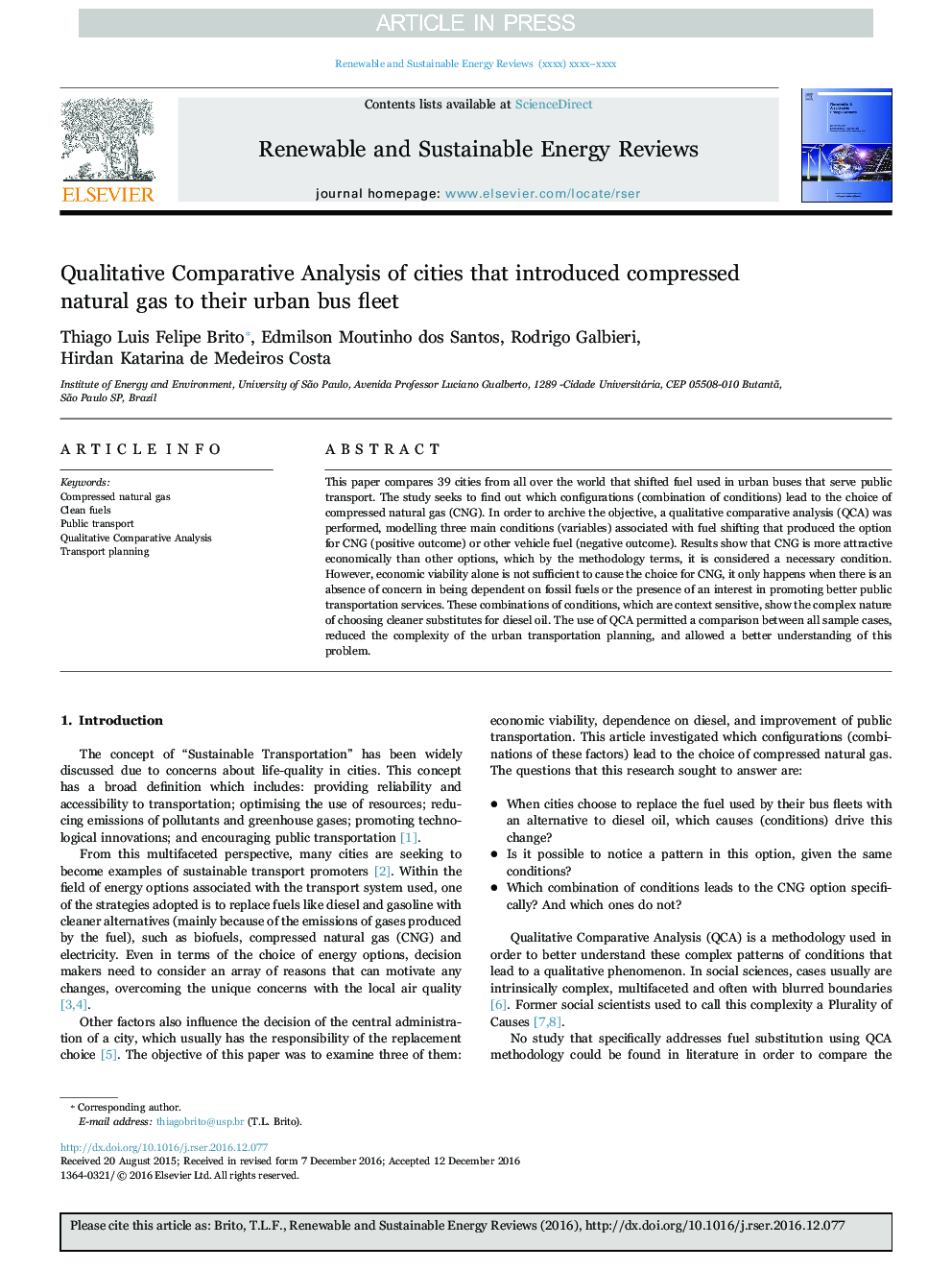| Article ID | Journal | Published Year | Pages | File Type |
|---|---|---|---|---|
| 5483058 | Renewable and Sustainable Energy Reviews | 2017 | 7 Pages |
Abstract
This paper compares 39 cities from all over the world that shifted fuel used in urban buses that serve public transport. The study seeks to find out which configurations (combination of conditions) lead to the choice of compressed natural gas (CNG). In order to archive the objective, a qualitative comparative analysis (QCA) was performed, modelling three main conditions (variables) associated with fuel shifting that produced the option for CNG (positive outcome) or other vehicle fuel (negative outcome). Results show that CNG is more attractive economically than other options, which by the methodology terms, it is considered a necessary condition. However, economic viability alone is not sufficient to cause the choice for CNG, it only happens when there is an absence of concern in being dependent on fossil fuels or the presence of an interest in promoting better public transportation services. These combinations of conditions, which are context sensitive, show the complex nature of choosing cleaner substitutes for diesel oil. The use of QCA permitted a comparison between all sample cases, reduced the complexity of the urban transportation planning, and allowed a better understanding of this problem.
Keywords
Related Topics
Physical Sciences and Engineering
Energy
Renewable Energy, Sustainability and the Environment
Authors
Thiago Luis Felipe Brito, Edmilson Moutinho dos Santos, Rodrigo Galbieri, Hirdan Katarina de Medeiros Costa,
